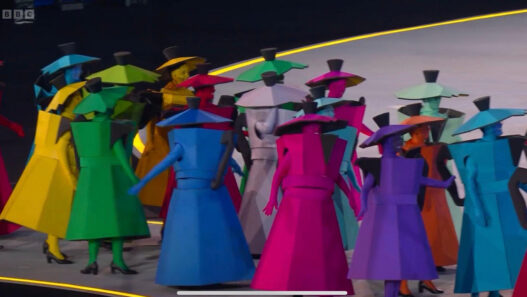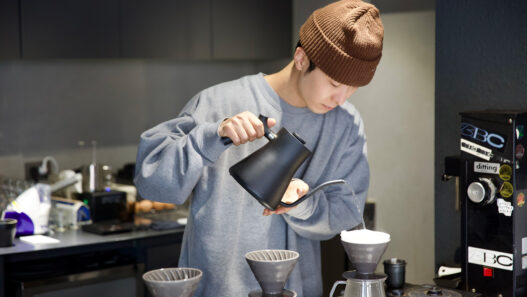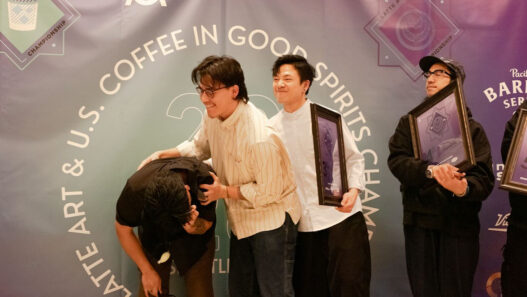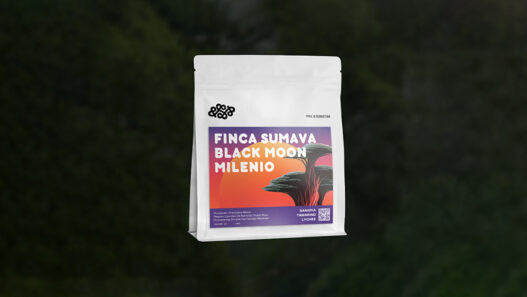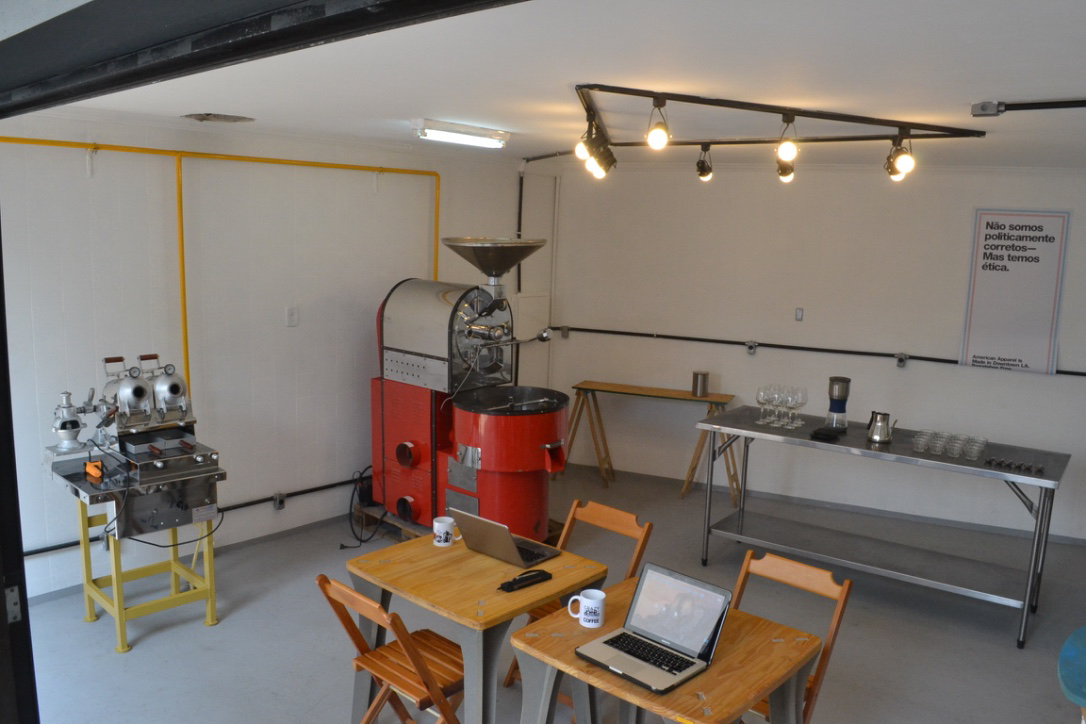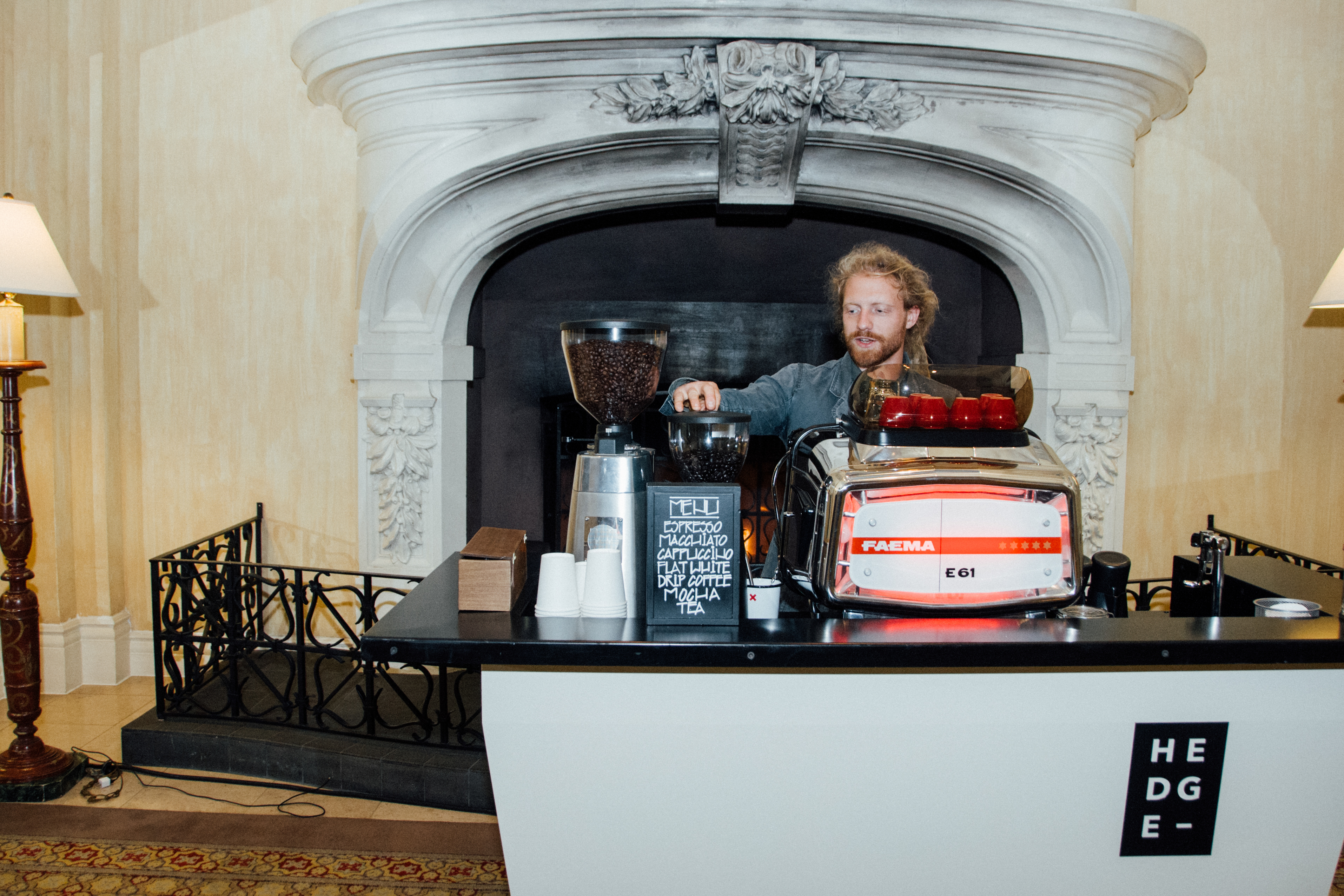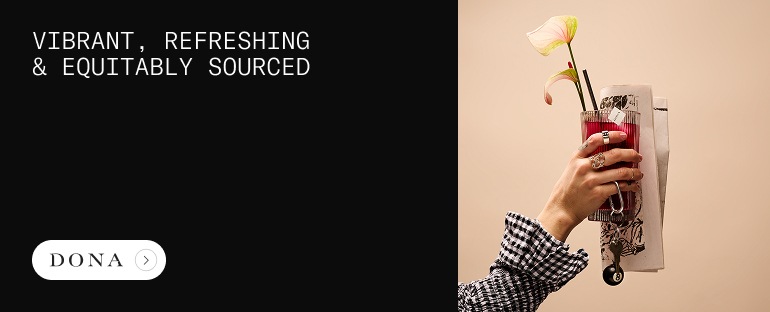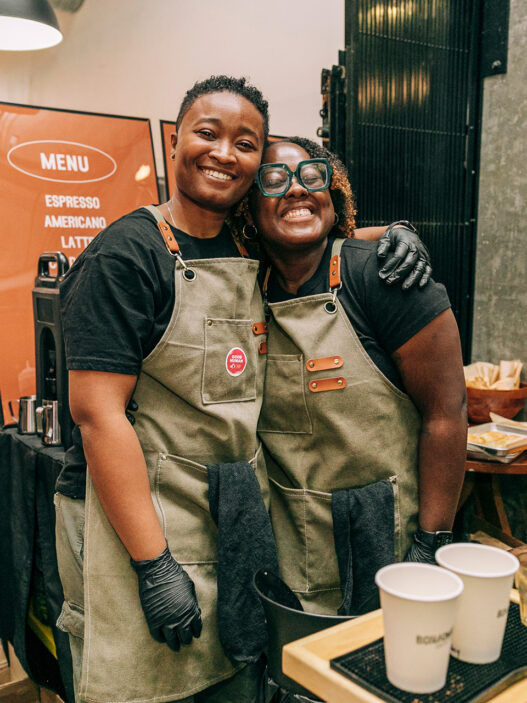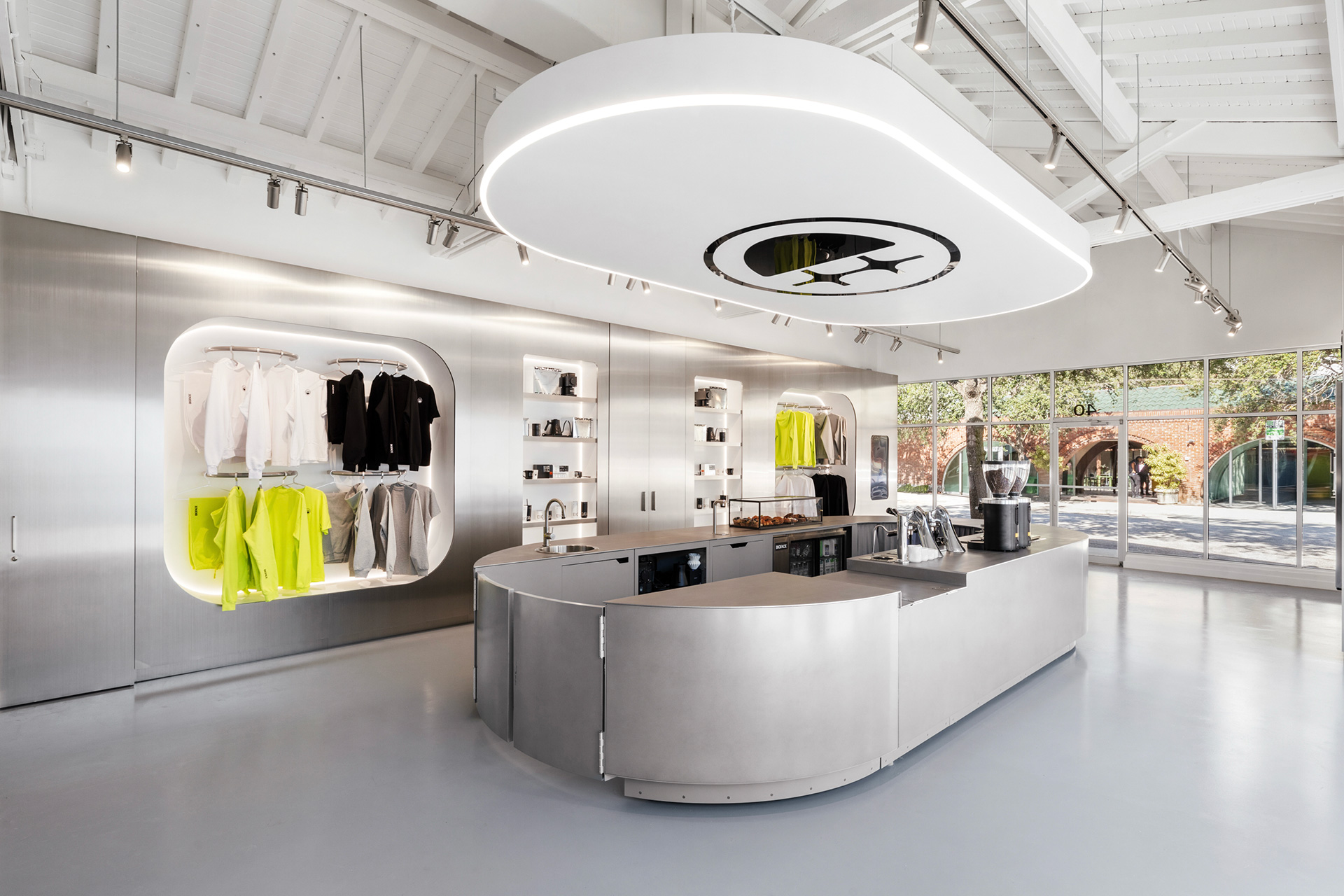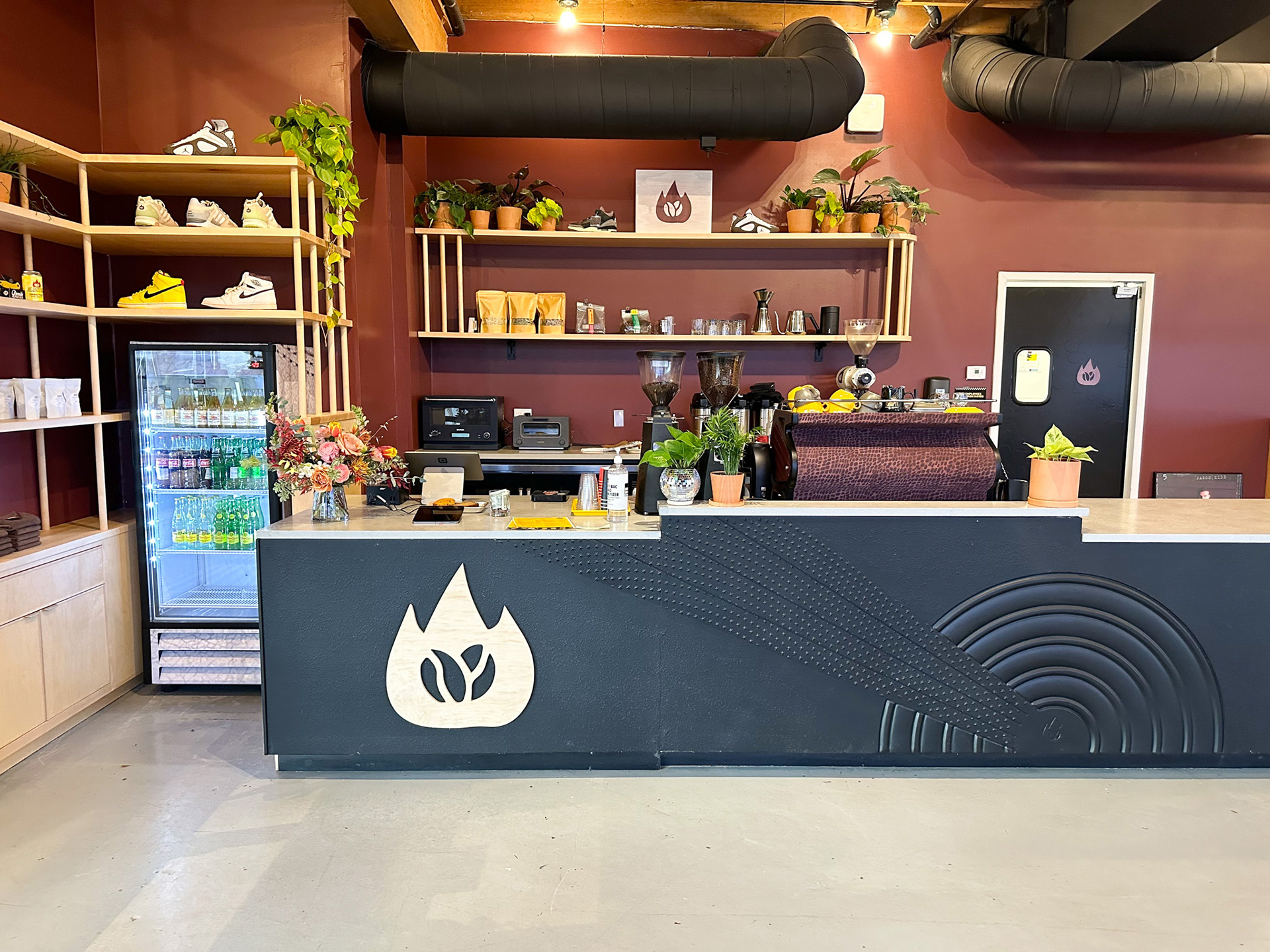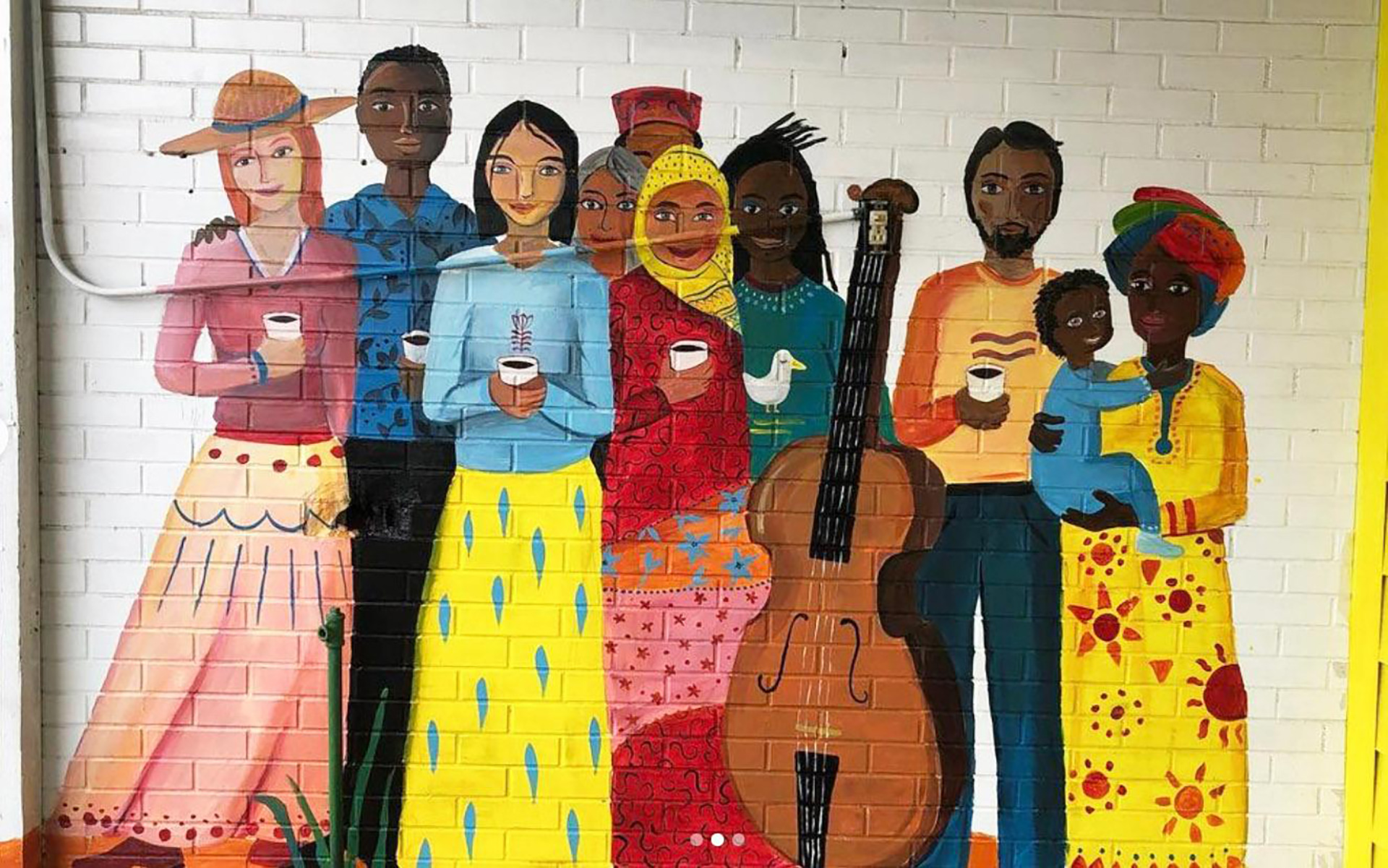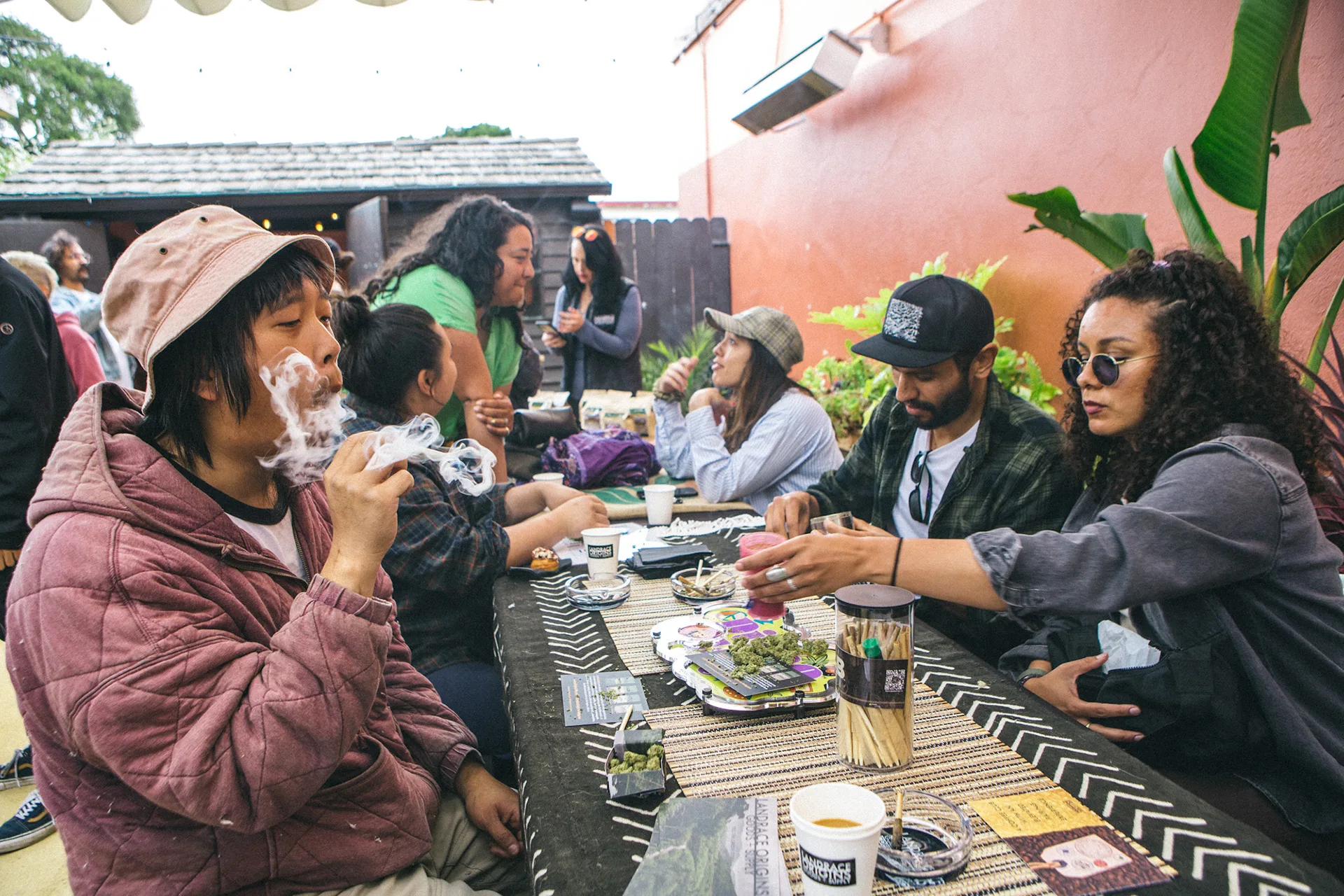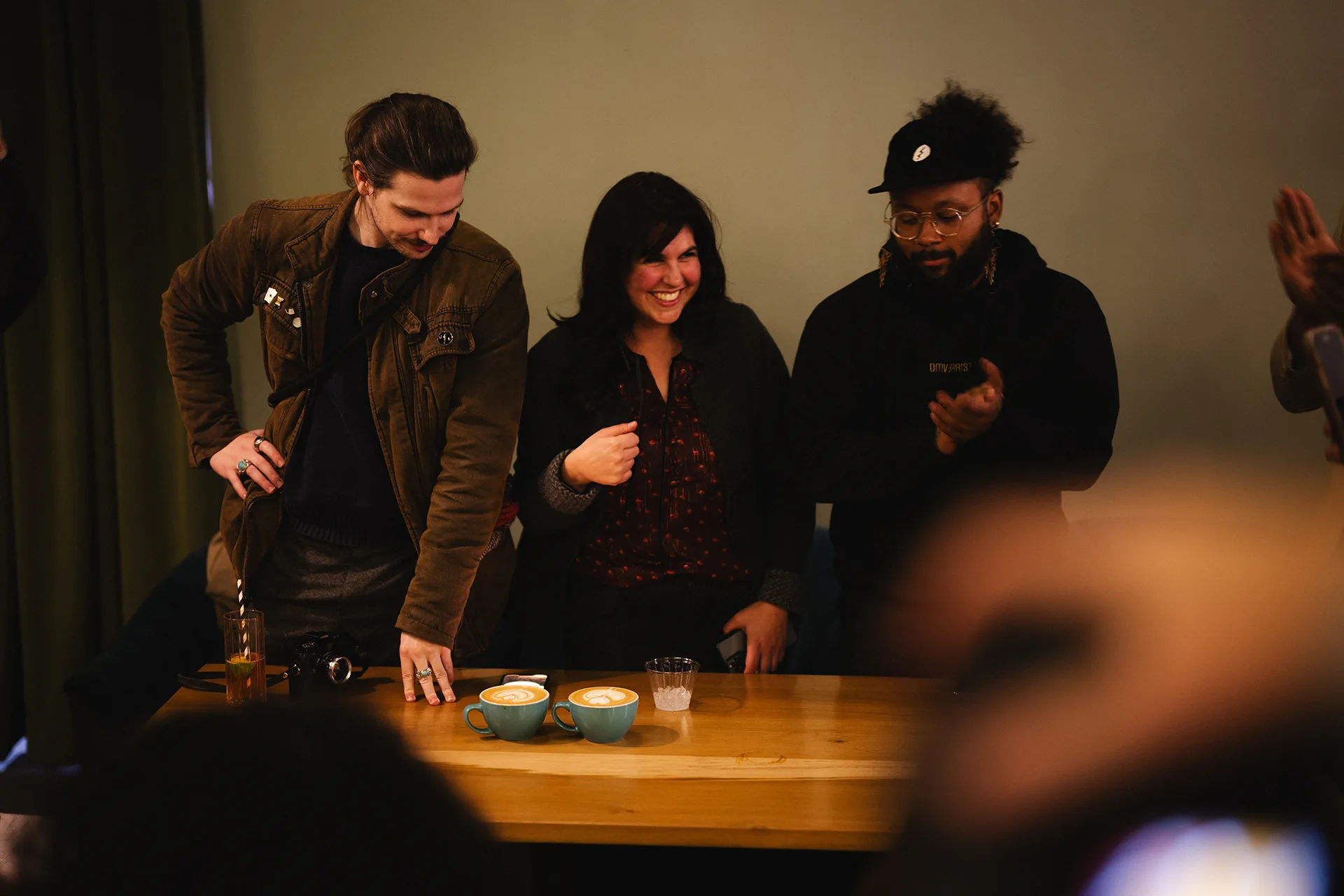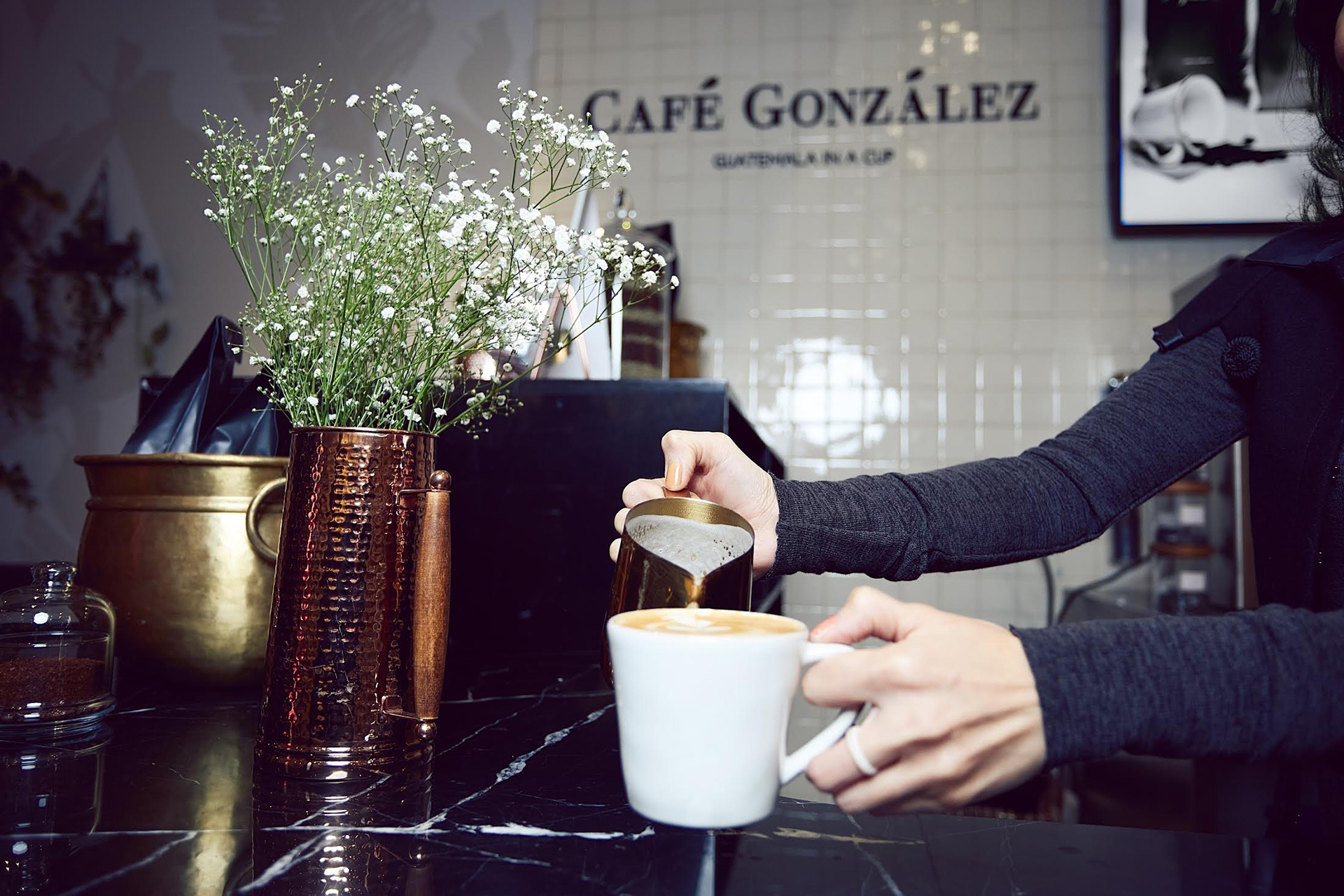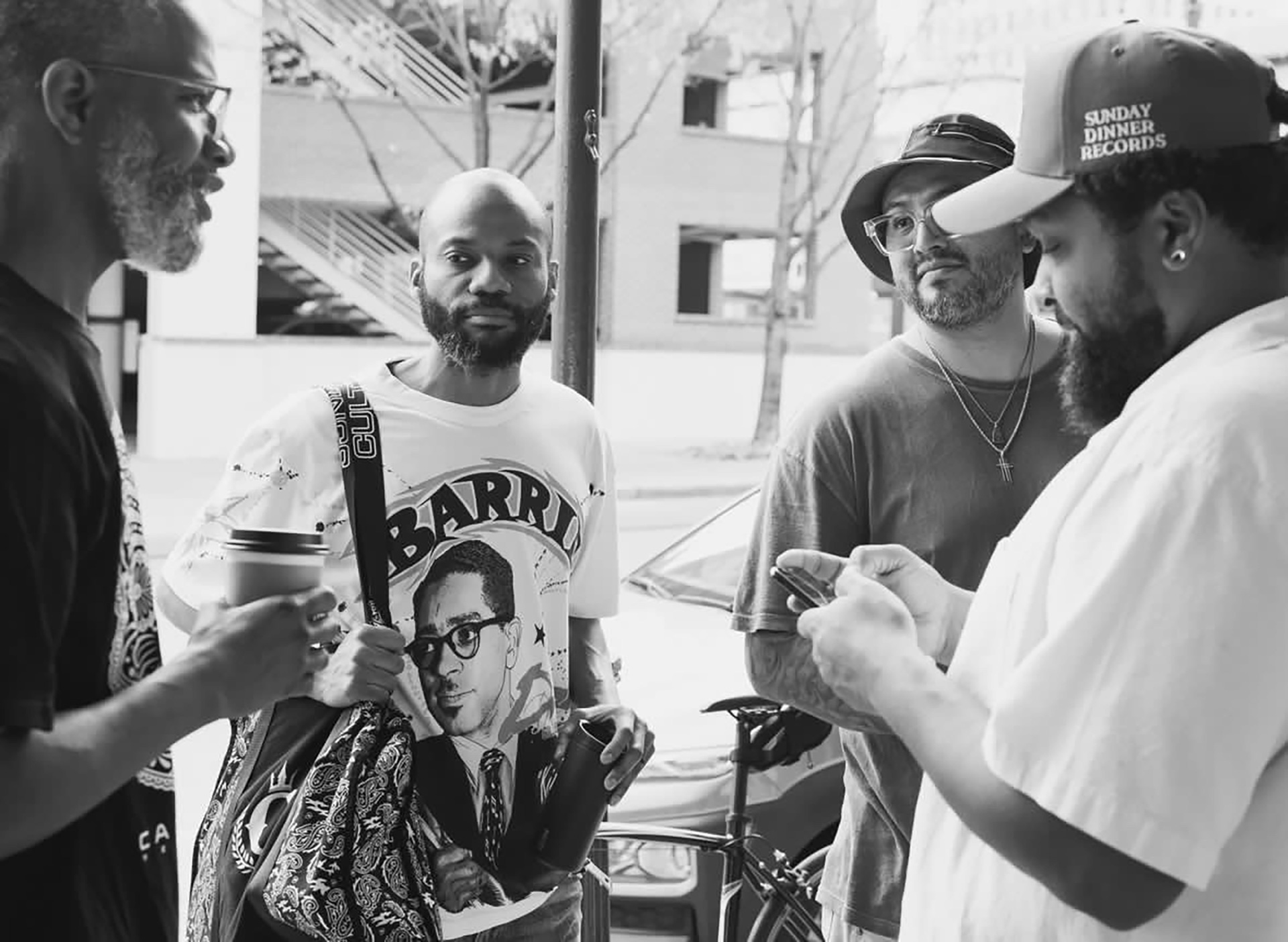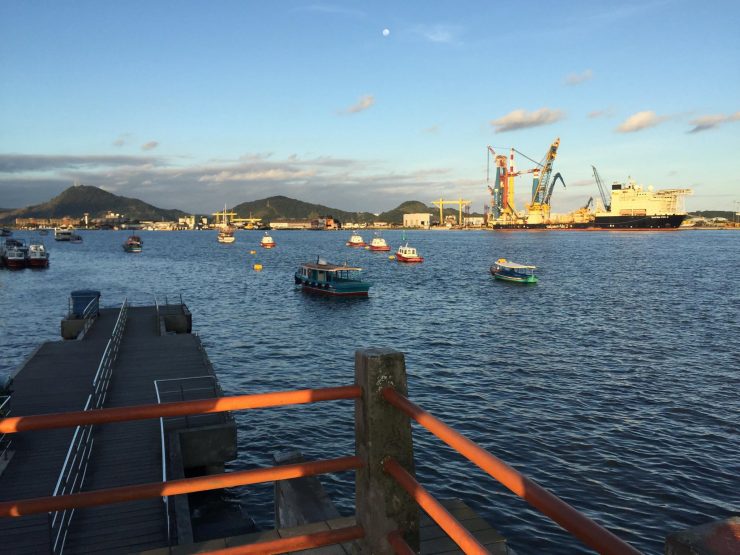
Vitor Ladaga, Lucas de Lorena, Rômulo Targon, and Vinícius Gomes are four friends in their mid-20s who have one thing in common: they all want their hometown, Santos, to be on the map of Brazil’s quality coffee scene. That is why they quit their former jobs and joined forces to launch REVO Coffee Co., a small roastery and lab set up in Ladaga’s garage.
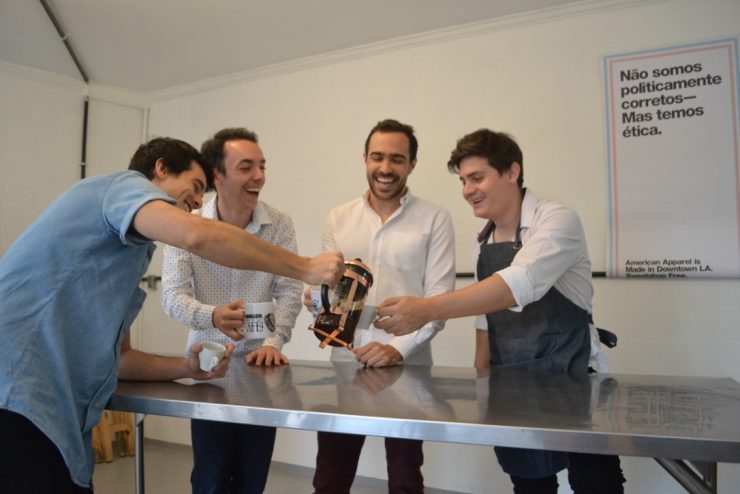
Being from a city that revolved around coffee in the past—around 80 percent of all coffee cultivated in Brazil is still exported through the port of Santos—all of REVO’s idealizers had some previous connection with the product: Ladaga had worked with commodity coffee exports for 10 years, while Targon’s family had a coffee farm. Gomes says he has always been a coffee geek, and de Lorena is a lawyer…who happens to love coffee. The initial idea was to open a business in São Paulo, but the costs were too high, and anyway, they saw a huge gap in quality coffee in their own city. Plus, Ladaga’s mom had a huge unused garage that could accommodate a roastery.
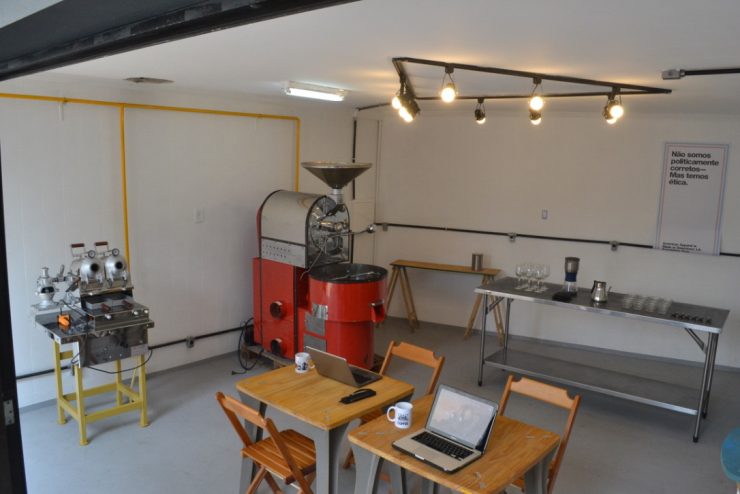
Santos, a city of around 450,000 people located 50 miles or so from São Paulo, has the biggest seaport in Latin America. The city’s wealth at the turn of the 20th century came almost exclusively from the coffee exporting businesses. The city is also home to the Coffee Museum, where coffee prices used to be negotiated. And yet, finding quality coffee around here is not an easy task.
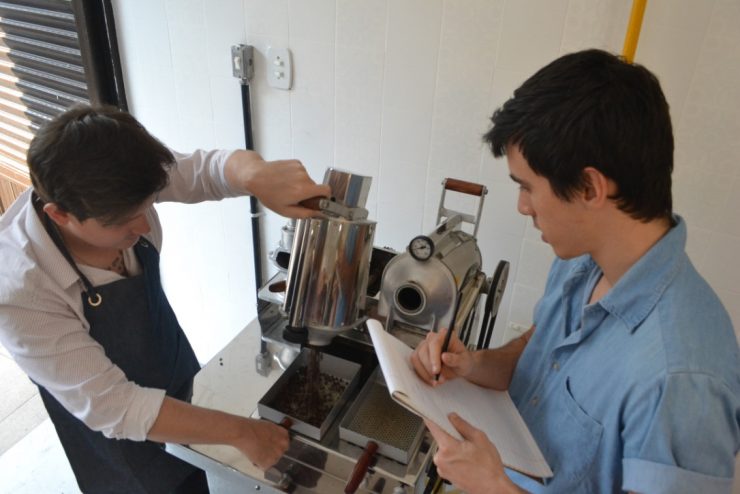
Ladaga and his partners aim to change this scenario. They have started weekly gatherings at Ladaga’s garage, where REVO’s lab is already up and running, to introduce Santistas (natives of Santos) to specialty coffee. “We have to be very careful with our approach,” he explains, “since Santos is a city of very traditional folks who truly believe they are having the best coffee experience at our cafes—and we are far from that.” Thankfully, he adds, things have been working out so far: most people appreciate the specialty coffee experience, and many wonder how it can taste so sweet without adding sugar.
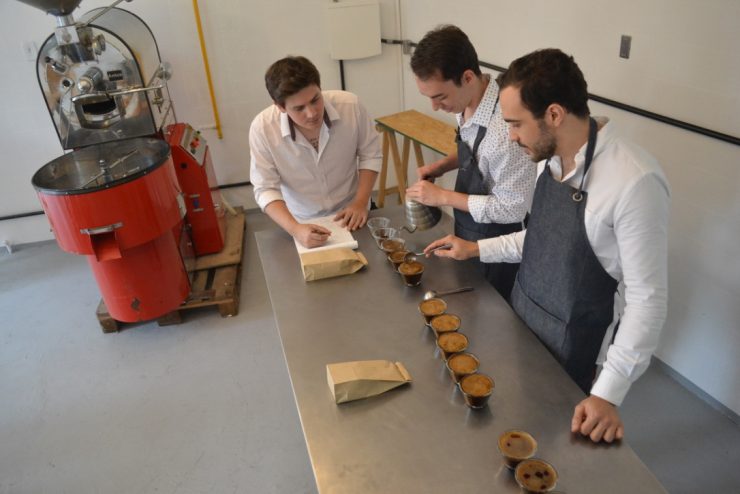
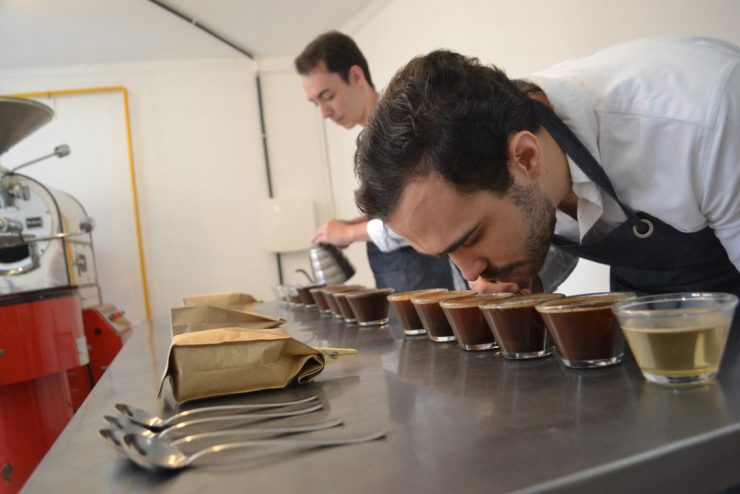
REVO’s founders also want to stimulate the broader artisanal work of independent producers in Santos. Gomes already produces artisanal breads, which they share when opening their lab for their gatherings, but the plan is to bring more people in to showcase and sell their crafts in the backyard next to the garage. “The idea is to revolutionize not only coffee but artisanal production of pretty much everything here in Santos,” Ladaga tells me.
I ask about their Florida-made Ambex roaster, as I have never seen that brand in the Southern Hemisphere. Ladaga explains they found it on Superbid, an online auction platform. When they found the roaster being sold for very little, they contacted the seller, who had acquired it randomly by buying a container in a federal auction; inside the container was the roaster. Not knowing what to do with it, he put it up for sale at 25 percent of its market price. The REVO team offered him more than he was asking, hoping to close the deal quickly. But the seller let the auction go on in the hope someone would bid higher. And someone did. Suddenly the REVO guys found themselves in a bidding war! But eventually, their mysterious rival finally gave up. The Ambex was coming to Santos, and REVO had its machine.
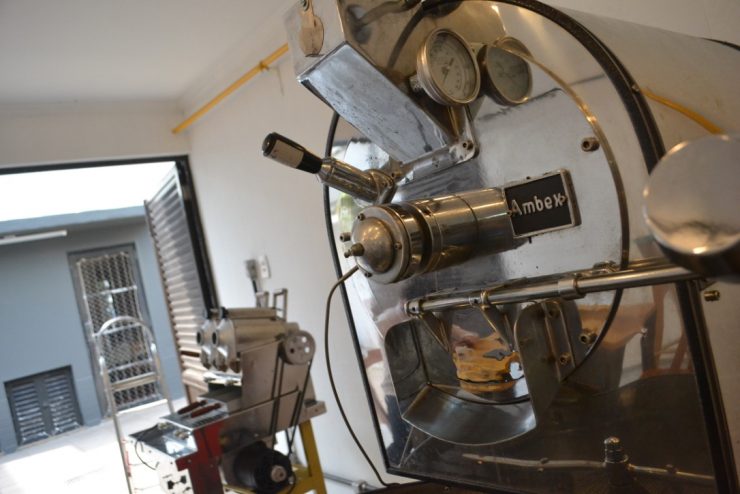
Besides being the only people doing artisanal coffee roasting in Santos, REVO’s sourcing also sets the company apart: they’ve chosen to obtain 100 percent of their coffee from organic farms. They believe this is the way to go for a clean, sustainable supply chain, and plan to visit everyone they buy from, to establish good relationships with their farmers. I ask if they are worried about supply, since we don’t see too much organic coffee here, let alone specialty coffee. Ladaga says that is exactly what they plan to change—by buying organic, they hope to incentivize others to do the same.
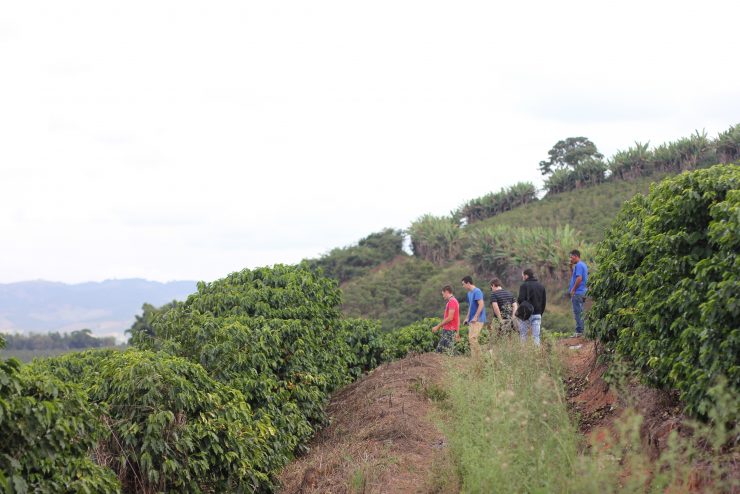
To help get things off the ground, the REVO founders launched a crowdfunding campaign to help buy the first 10 60-kilogram sacks of organic coffee. Their business model aims to revolutionize the coffee chain, helping farmers and consumers to think outside the box when it comes to their country’s top product. One thing is for sure: by the end of the year, Santistas will have better coffee to drink, thanks to these four guys.
Juliana Ganan is a Brazilian coffee professional and journalist. Read more Juliana Ganan on Sprudge.
Photos courtesy of Juliana Pinto.




